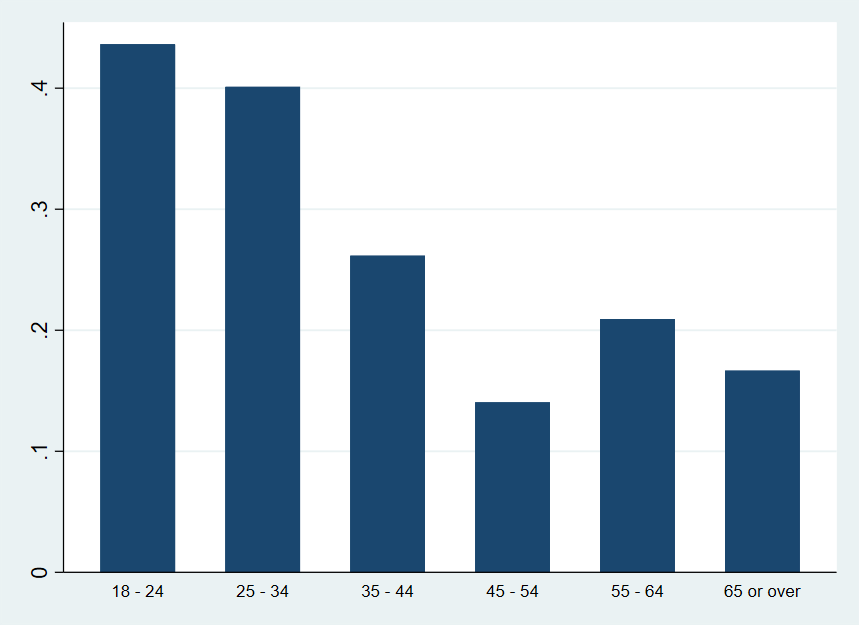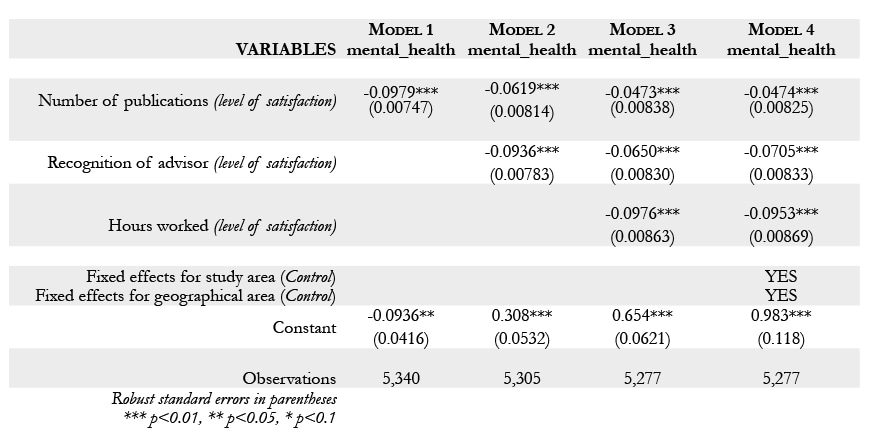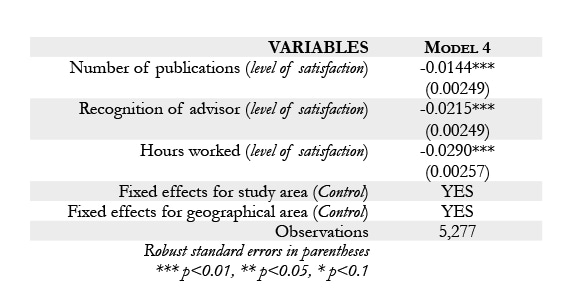Mental health concern among PhD students: evidence and policy implications
Published in Social Sciences

When I was an undergraduate student, I attended very often office hours to deepen the subjects or simply to get clarifications. During a meeting with a Professor, I saw a green poster on the wall in his office. It was "Publish or perish". Until a few years ago, I was not sufficiently aware of its meaning and, frankly, I would never have considered continuing my studies with a doctorate. Later, instead, I decided to begin the academic career and now I am enrolled in a PhD programme. My mentor? Unsurprisingly, after supervising my bachelor and master theses, is the same professor who still has that poster at the office entrance.
However, what really counts to get some chances in the future is not written on that poster: publish high-quality articles in journals with a good reputation and (try) to make a contribution in terms of advancement of knowledge. To do this, a very hard commitment and resilience are needed.
In general, the academic career path is not exempted from highly fluctuating feelings, ranging from the excitement about some rare successes to the frustration for many fails and for other determinants, including overworking, low gratification from the advisor and loneliness.
Although the psychological condition of the early career researchers has been given greater consideration than in the past, the issues should not be confined at the University level but it need to be extended to the public opinion and decision makers.
As revealed by the Nature's 2017 PhD survey (5,700 participants), 4 respondents out of 10 (1,575/4,148) indicated mental health among the causes of concerns since the start of their PhD. Considering within the different age groups as shown in figure 1, it is observed that young people between 18 and 24 (44% or 192/440) and those between 25 and 34 years old (40% or 1,238/3,086) are the most concerned about their mental health.
Figure 1 – People concerned about their mental health, with respect to the respondents of the same age group

Among the 1,500 students concerned about their psychological condition, one out of two (825) never asked for help for anxiety or similar hardships. Otherwise, among the more than 700 who have asked for help, only 1 out of 3 found the counselling offered within their institution useful, while another third (228) has turned elsewhere. The remaining, although asking for help, did not find it (138 or 8.7%) or would have liked, but nobody was available (38 or 2.4%).
Going deeper, it is useful to look for some evidence or link between the concern about mental health as a result of the doctorate and other additional answers from the Nature's survey 2017.
For this purpose, a simple econometric Probit model has been implemented, in which the dependent variable assumes value 1 if the respondent has indicated the concern for her/his mental health and 0 otherwise.
In the first version of the model, it has been investigated if the degree of satisfaction with respect to the number of publications - ranging from 1 to 10, with 10 = extremely satisfied - used as the key regressor, could influence the probability of worrying about psychological conditions.
The hypothesis is that an increase in the degree of satisfaction with the number of publications would tend to reduce the likelihood of mental health concern as a result of the doctorate. In the second model specification, the gratification received from the mentor -even expressed as satisfaction from 1 to 10 - was added as an additional regressor.
As before, the intuition suggests that greater recognition of the mentor tends to decrease the risks connected to psychological conditions. The third specification also included the variable related to satisfaction with the number of hours worked.
Results obtained from the probabilistic models (Table 1 below) indicate that the three key variables (Number of publications, recognitions of advisor and hours worked) have the expected (negative) sign, statistically significant at 99%, as well as the marginal effects (Table 2). Furthermore, to perform a robustness check, some controlling variables have been included: one geographical and another related to the study address (classified as STEM or non-STEM). Again, the signs of the key variables are confirmed negative and statistically significant at 99%.
In conclusion, without taking into account other factors that could affect the dependent variable, the estimates suggest that a marginal increase in the degree of satisfaction may reduce the probability of worrying about the mental health of 1.4% considering the number of publications, which for those who switch from 1 to 10 the effect is 14%, by 2.15% in case of greater gratification from the advisor (21.5% maximum) and by 2.9% in the case of more satisfying working conditions (29% maximum).
This analysis could be useful to offer some behavioral policy indications at different levels.
First of all, the academic institutions that are still lacking, should equip themselves with an adequate policy to face the phenomena of loneliness and potential psychological disorders that could affect students, researchers, professors and staff. The university should be a vibrant community of people who share work and emotions, who interconnect in global networks of relationships and the answer to this emerging problem should therefore be not only local but global.
Furthermore, to drain the psychological pressure of young researchers, it could be useful - as some editors have chosen to do - to reserve a dedicated space to early-career scholar's researches or insights, offering a guided path for continuous improvement.
Finally, behind every challenge there is an opportunity to be grasped with the awareness of having two allies who guide us in adversity: an extraordinary hunger for knowledge and renewed curiosity.
Table 1


Follow the Topic
-
Nature Human Behaviour

Drawing from a broad spectrum of social, biological, health, and physical science disciplines, this journal publishes research of outstanding significance into any aspect of individual or collective human behaviour.

Please sign in or register for FREE
If you are a registered user on Research Communities by Springer Nature, please sign in